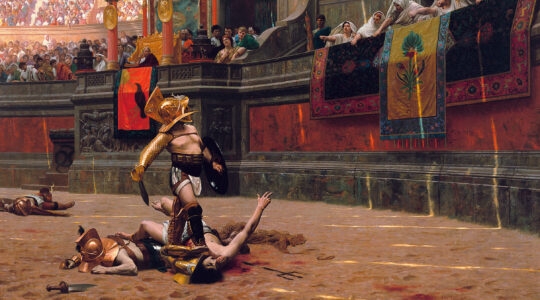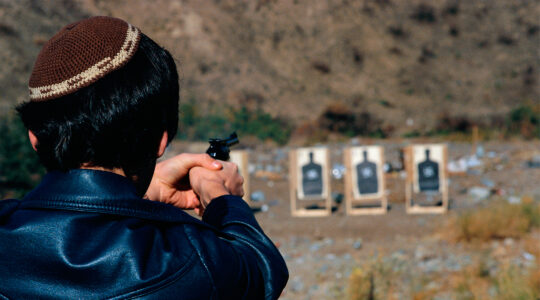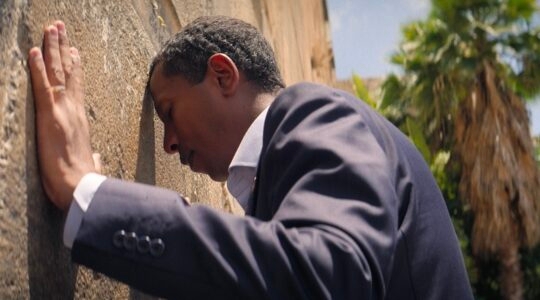BERLIN (JTA) — A judge in Germany has barred two American Jewish brothers who survived the Holocaust from being co-plaintiffs in the trial of a 96-year-old former Auschwitz SS medic charged with being an accessory to murder.
Chief Judge Klaus Kabisch in the Neubrandenburg state court explained Tuesday that Walter and William Plywaski of Boulder, Colorado, — themselves Auschwitz survivors — could not join the trial of Hubert Zafke because their parents died at the camp outside the time frame of the indictment, a one-month period in 1944.
The brothers had been approved initially as co-plaintiffs after a higher court rejected Kabisch’s arguments about the time limit.
Zafke faces charges of accessory to the murder of 3,681 people. In his capacity as a medic, he reportedly witnessed arriving prisoners being sent to die in the camp’s gas chambers.
Meanwhile, the trial has been delayed over concerns about the mental and physical health of the defendant. Last year, Zafke’s son pleaded with the court to leave his father in peace.
Critics suggest that Kabisch may be trying to delay the procedure. According to German news reports, in an unprecedented move, prosecutors have filed several petitions — in vain — to have Kabisch removed from the case due to bias.
The attorneys for the Plywaskis said they would appeal to have the brothers reinstated as plaintiffs. Thomas Walther and Cornelius Nestler also are considering filling bias charges against the court.
Germany’s Central Office for the Investigation of National Socialist Crimes in Ludwigsburg made a major push to identify former death camp guards after the conviction of John Demjanjuk in 2011 for his role in the murders of nearly 30,000 Jews in the Sobibor death camp in Poland. That case set the precedent that being a guard at a death camp was sufficient to prove complicity in murder.

Help ensure Jewish news remains accessible to all. Your donation to the Jewish Telegraphic Agency powers the trusted journalism that has connected Jewish communities worldwide for more than 100 years. With your help, JTA can continue to deliver vital news and insights. Donate today.





